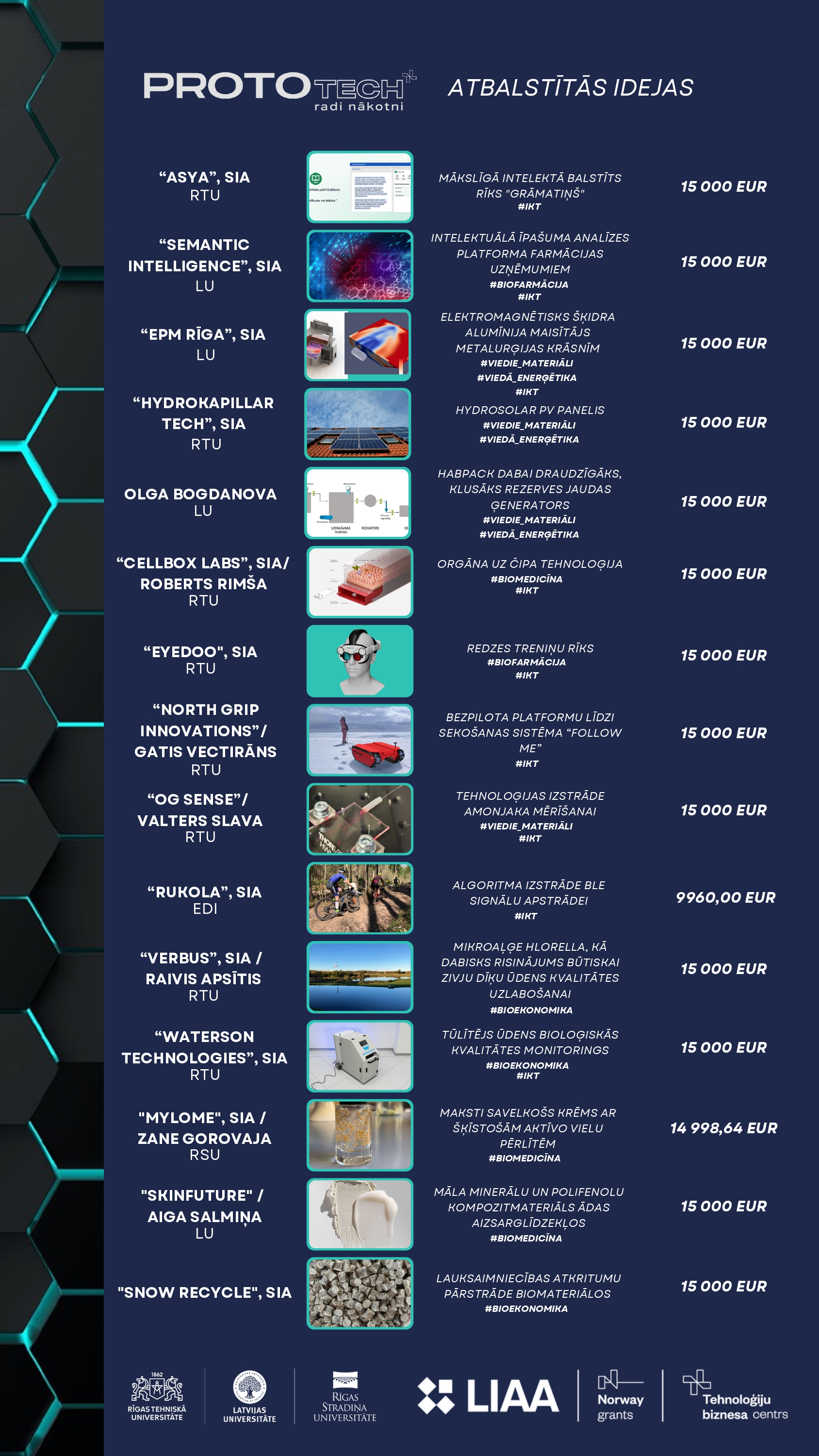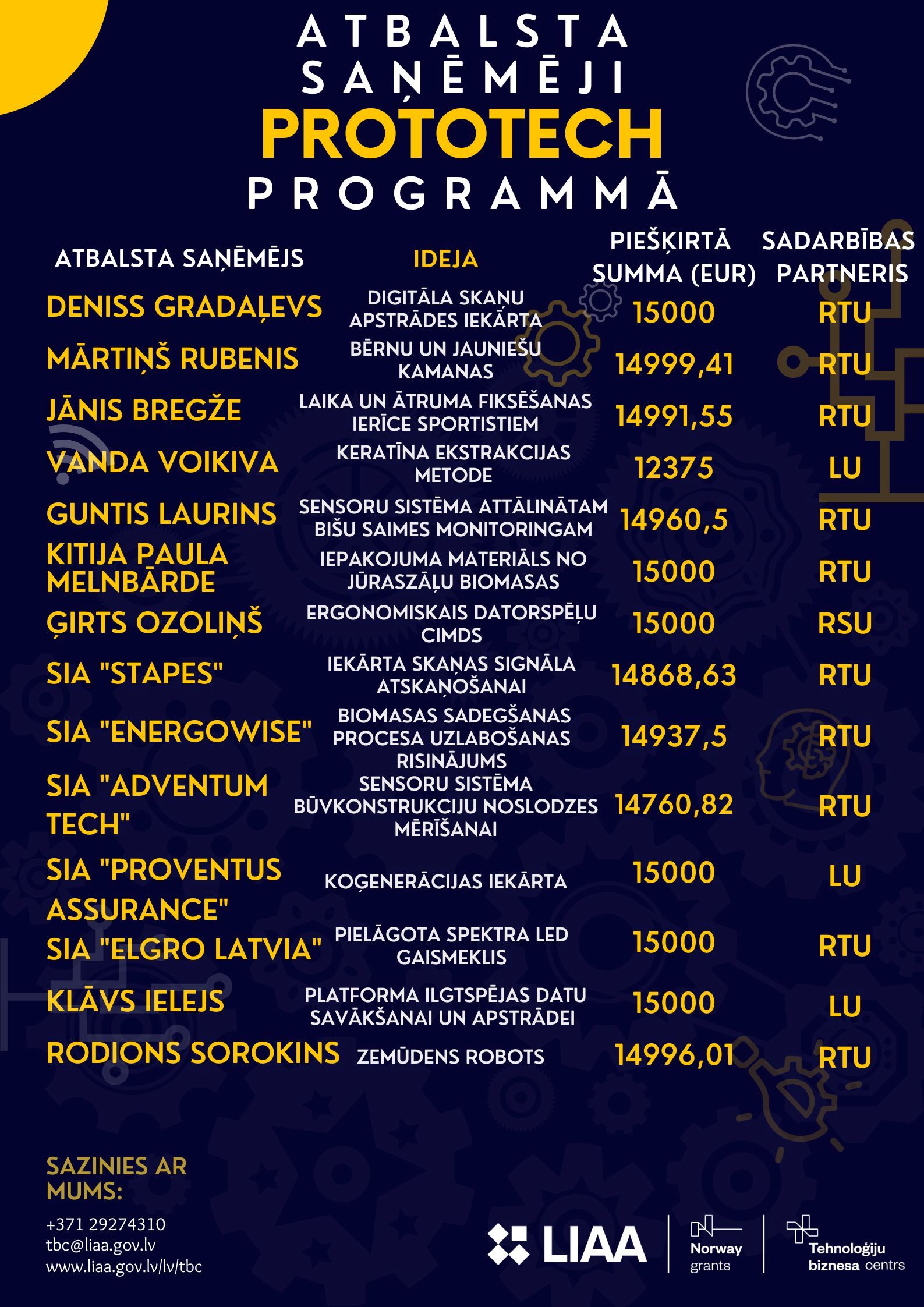Given the major challenges that plastic pollution poses to the world, the search for alternatives to plastic - biodegradable, environmentally and human-friendly materials - is growing. By participating in the Latvian Investment and Development Agency's Technology Business Centre prototyping programme «PROTOTECH», RTU has produced two prototypes for alternative packaging: a biofilm made from seaweed biomass and cups made from coffee grounds and other natural fibre residues.
The task of the team led by Professor Sergejs Gaidukovs from the Institute of Chemistry and Chemical Technology, Faculty of Natural Sciences and Technologies, RTU, was to produce a prototype packaging material using seaweed biomass and to characterise the exact chemical and physical properties of the material. The result is a biodegradable, film-like, flexible, optically transparent and hot-water-soluble packaging material. «We had to develop a film made from algae, as requested by our client Kitija Paula Melnbārde. Of course, you can't make a suitable film from algae itself, so we started looking at the scientific literature. It is known that a special substance can be extracted from algae and a film can be made from it, but the pure film of this substance does not have the mechanics and other properties that the client wanted. So we adjusted the formulation a little to meet the technical specification: specific solubility, specific mechanics, specific visual properties,» says Anda Barkāne, a researcher at the Institute of Chemistry and Chemical Technology, who led the project, adding: «We didn't have to invent a new bicycle, because there is already a lot in the scientific literature, but it took some time and knowledge to get exactly what we needed.»
The material's intended initial use is in the packaging of personal care products, thereby reducing the amount of fossil-based plastic packaging in the cosmetics industry. Consequently, the material also had to be safe in contact with cosmetic products, without toxic or hazardous substances for nature and humans. «The potential of this product is high enough if it can be transferred to a specific production line. Potentially, it could be used to package a lot of things, because it is also safe for food. In addition, the film can be customised,» explains A.Barkāne.
RTU Science and Innovation Centre's Innovative Product Development Unit (IPDU) is testing a material made from coffee grounds and other natural fibre residues to be used in the production of environmentally friendly coffee cups. «Our client «Snow Recycle» is working on a natural fibre and food waste material - filament 3D printers. It contains a biodegradable polymer, so the material is both environmentally friendly and makes good use of waste,» says IPDU CEO Kārlis Kalniņš. IPDU's specialists were tasked with modelling and printing the mugs for this project. «RTU researchers had already done the scientific research, it was up to us to put it into practice. The design process to find the most suitable shape and to carry out this type of print job was challenging,» says Kalniņš. The printed material looks as expected, similar to thin clay, and has the potential to be used for design objects or elements. During development, a comparison with competitors was also made and it was found that greenwashing often occurs in the field of biopolymers because the materials are not completely pure. This is a truly environmentally friendly solution. The client intends to mass-produce these coffee cups by injection moulding, and the 3D printed models currently produced will serve as a reference for further investment.
Working together for a competitive Europe!


